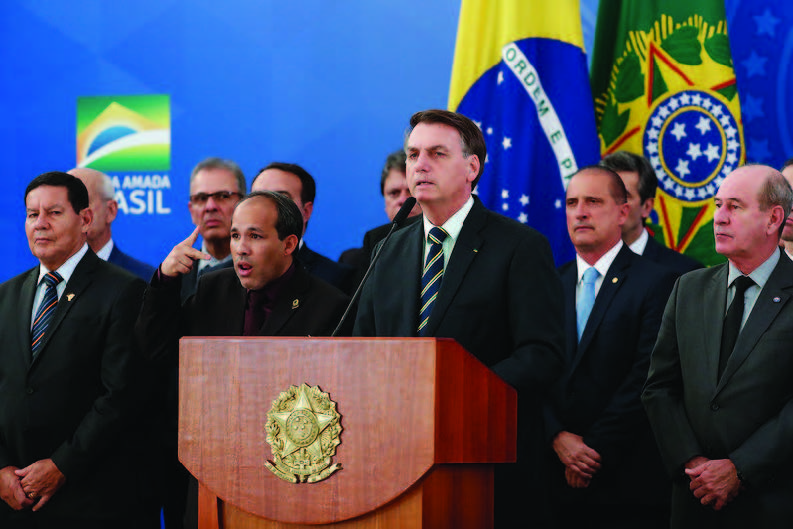
Brazil has increasingly used religion in wielding its “soft power” in much of the world, most recently in a conservative Christian direction under populist President Jair Bolonaro, according. to political scientists Guilherme Casarões and Amy Erica Smith. As part of a series of lectures on the use of religious soft power sponsored by the Berkley Center for Religion, Peace and World. Affairs at Georgetown University, Casarões and Smith spoke at a late-February Zoom webinar, attended by RW.

© 2020 Alan Santos/PR (https://www.flickr.com/photos/51178866@N04/49814540863, Creative Commmons).
Brazil has been the quintessential soft power country, lacking in military and economic strength but using diplomacy to play the role of a “middle power” based on such values as universalism, development, and multilateralism. In the last decade, Brazil has brought religion into its use of soft power to construct a national identity and to build political coalitions at home and abroad. This use of religion in foreign policy was seen in the previous government of Lula as he used religious themes to build ties to other Latin American nations and to serve as an “honest broker” in negotiations between Palestinians and Israel, while stressing religious pluralism.
Bolsonaro has reintroduced the idea of Brazil as a Christian country in foreign policy, although he has been careful to avoid pitting evangelicals and Catholics against each other. While Brazil’s Catholic bishops have expressed mild opposition to him (he himself is Catholic, although he was rebaptized by evangelicals during a trip to Israel), they realize that many Catholics support Bolsonaro. Making common cause with other conservative Christian countries, such as Poland and Hungary, the government has also been active in efforts to defend the traditional family at home and abroad and participated in religious freedom coalitions with the Trump administration. Such Christian soft power was seen in the establishment of the National Association of Evangelical Jurors at the United Nations, according to Casarões and Smith, in opposition to gender identity policies. Bolsonaro’s use of soft power can also reach into inter-church affairs. He has recently inserted himself into a dispute between pastors of Brazil’s Universal Church of the Kingdom of God and a branch of the church in Angola. Casarões said that Brazil’s religious right and its use of soft power is “not going anywhere;” there is at least 30 percent of the population who will believe in Brazil as a godly nation even when Bolsonaro passes from the scene. While it might be in Bolsonaro’s interest to get closer to the U.S. under the Biden administration, “he will find criticism from supporters who believe Biden is a socialist,” Casarões concluded.